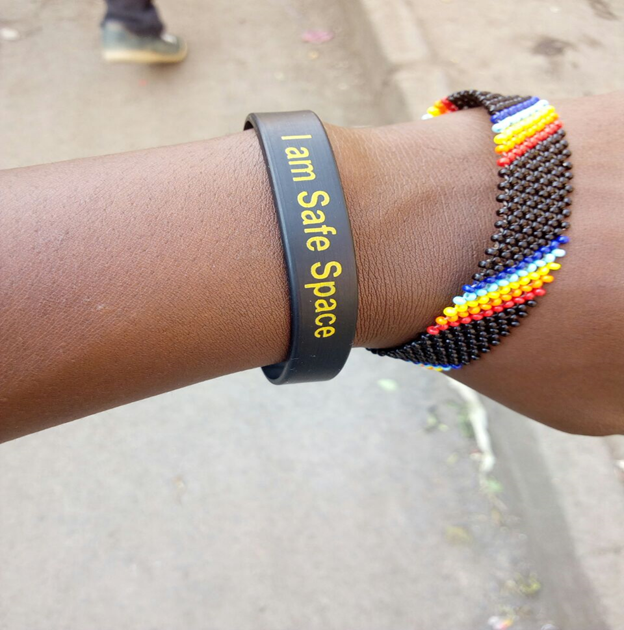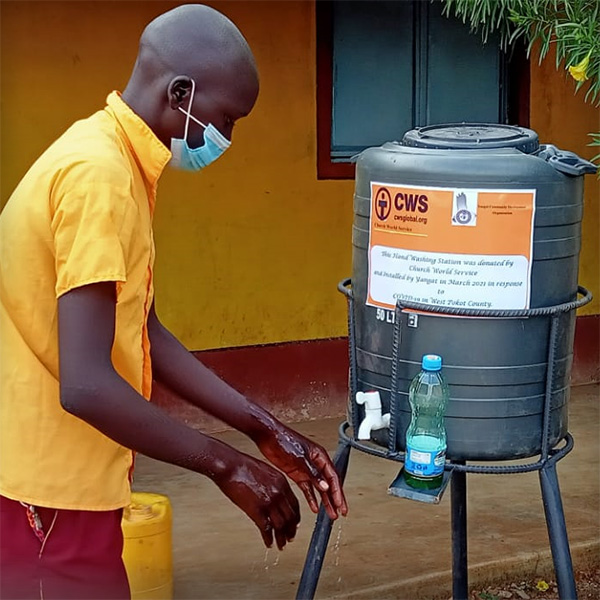Stories of Change

Safe Space program participant wearing "I am Safe Space" bracelet
Creating Space For a Better Life
Love, family and faith are three things that many people value highly. But what happens when who you love puts your relationship with your family and your faith at risk? This is a challenge for many people around the world who are part of the LGBTQ+ community. In some countries, laws prohibit homosexuality by criminalizing same-sex conduct. These laws proliferate homophobic sentiments and often leave people who identify as LGBTQ+ feeling isolated and ostracized by their communities.
These feelings of isolation and confusion were some of the difficult feelings Sharon knew too well. In her experience as a lesbian, Sharon struggled with rejection from both her family and her church. “I was a struggling lesbian, deeply lost between my sexuality and my Christian faith. I am a mother of two daughters, and it was hard to explain how a lesbian woman had children. As a child, I had grown up in Church and I wanted to please God, but everything else within me was saying otherwise,” Sharon shared.
Fortunately, things took a turn for the better for Sharon in 2016 when she was connected to the CWS Safe Space Program. She wrote, “I was invited to a conference in Limuru hosted by the CWS Safe Space Program and my life changed. I got a chance to meet theologians from St. Paul’s University and other parts of the country who helped me gain many insights into issues of sexual orientation, gender identity and expression. I came to understand myself more through this encounter.”
This experience of self-understanding Sharon describes is one that we hope to achieve for other members of the LGBTQ+ community. To do this, our Safe Space Program works on building relationships with local religious leaders in the community and sparking critical conversations. These relationships and conversations are pathways to open up doors for LGBTQ+ members and allow them to live their life more fully and without fear of persecution or rejection.
The Safe Space Program has also made its mark in the home life of many program participants. Since joining the program, Sharon’s parents, brother and sister have all attended Safe Space Program awareness sessions. These sessions educate family members of LGBTQ+ persons to destigmatize homosexuality and create a safer and more welcoming environment at home. Sharon remarked, “I am safe at home and reconciled my sexuality with my Christian faith.”
Since joining the program, Sharon has become an advocate for LGBTQ+ rights and leads training sessions in the Safe Space Program. She stated, “I am a testament to this program; it has changed my life.” By planting seeds of education, understanding and acceptance, our Safe Space program is working towards a world in which all can love freely and live as their most authentic selves.
Note: Pseudonyms were used in this story to protect the identity of the program participant.
The CWS Safe Space program works to ensure that LGBTQ+ community members are respected, valued and included. Much of this work is done by engaging with leaders from faith communities in Africa. We would also like to thank the Arcus Foundation for their support of this work. Learn more about our work in Africa here.


